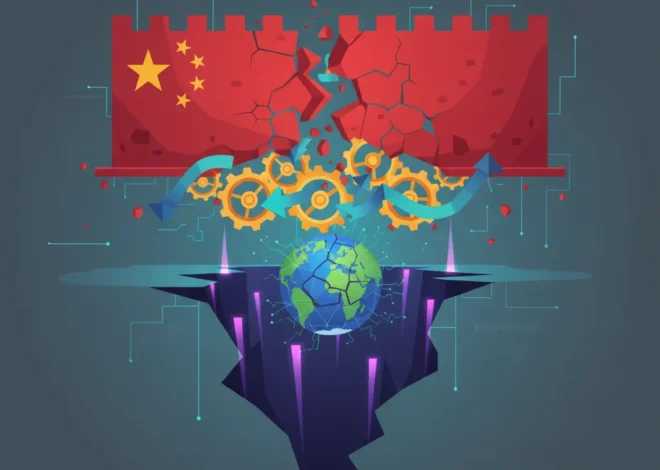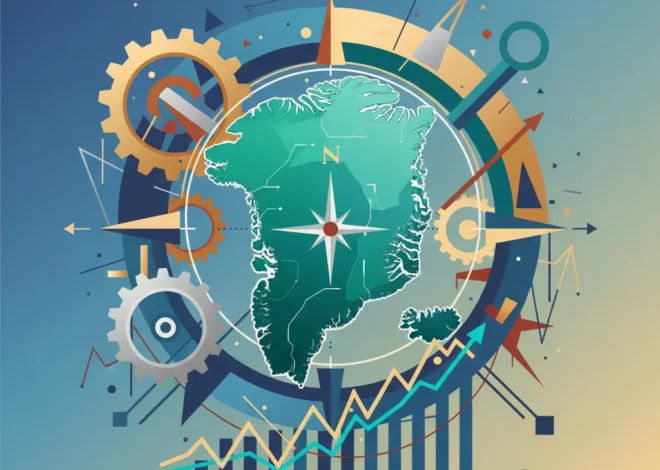
The New Geopolitical Playbook: What a Visa Ban Means for Global Finance, Investing, and the Economy
In a move that reverberated far beyond the realm of immigration policy, the U.S. State Department recently took the unprecedented step of revoking the visas of individuals who publicly celebrated the death of a prominent American political commentator, Charlie Kirk. The initial announcement confirmed six visa revocations, with a clear signal that more could be on the horizon. While on the surface this appears to be a niche political story, for astute investors, finance professionals, and business leaders, it serves as a critical data point—a sign of an evolving landscape where non-financial, social, and even personal actions can have direct and severe economic consequences.
This incident is not merely about free speech or consular affairs; it’s a case study in the new, expanded definition of geopolitical risk. It highlights the increasing willingness of governments to leverage non-traditional tools to enforce policy and project power. For anyone involved in the global economy, from multinational corporations to individual investors in the stock market, understanding the implications of this shift is no longer optional—it’s essential for survival and success.
Redefining Risk: When Social Media Posts Impact Market Realities
For decades, the world of investing has priced in “political risk.” Traditionally, this calculus involved factors like the stability of a government, the threat of nationalization, currency fluctuations, and regulatory changes. It was a quantifiable risk, often reflected in sovereign credit ratings and risk premiums. However, the 21st-century digital landscape has introduced a new, more nebulous, and arguably more potent variable: the weaponization of personal data and online behavior as a tool of statecraft.
The visa revocations demonstrate that a government’s reach now extends into the digital town square. An individual’s social media activity can now trigger a response with tangible, real-world consequences, such as the loss of access to the world’s largest economy. This has profound implications for several key areas:
- Talent Mobility: The U.S. economy, particularly its high-growth sectors in technology and finance, is heavily reliant on attracting the world’s best and brightest. This policy introduces a new layer of uncertainty for foreign nationals working or aspiring to work in the U.S., as well as for the companies that depend on their expertise.
- Corporate Liability: A company’s key engineer, a brilliant quant on a trading desk, or a C-suite executive on a work visa could suddenly become persona non grata due to online activity that the company has no control over. This creates a new, unpredictable operational risk.
- Investment Due Diligence: For investors, assessing a company’s health now requires looking beyond the balance sheet. What is the composition of their key workforce? How exposed are they to disruptions in talent mobility? This action signals that the political and social leanings of key personnel could, in extreme cases, become a material risk.
This paradigm shift forces us to reconsider how we model risk. The clear and present danger is no longer just a military coup in a distant country; it’s a policy shift announced in a press briefing that can instantly devalue human capital—a company’s most critical asset.
The Chilling Effect on the Global Talent Pool and Economic Growth
The engine of modern innovation, from Silicon Valley’s fintech hubs to Wall Street’s complex financial instruments, is fueled by a global talent pipeline. According to the National Foundation for American Policy, immigrants have started more than half (319 of 628) of America’s startup companies valued at $1 billion or more (source). Policies that create ambiguity and fear for this talent pool can have a significant chilling effect, with direct consequences for economic growth and competitiveness.
Consider the downstream effects:
- Brain Drain Reversal: For decades, the U.S. has been the primary beneficiary of global “brain drain.” If the perception grows that the U.S. is an unpredictable or unwelcoming environment, top-tier talent may choose to take their skills and entrepreneurial ambitions to other competitive economic centers in Europe or Asia.
- Innovation Stagnation: A reduction in the diversity of thought and experience within key industries can lead to innovation stagnating. This directly impacts long-term stock market growth, which is predicated on continuous innovation and disruption.
- Increased Costs for Business: Companies will have to invest more in legal services, immigration consulting, and potentially even social media monitoring for key visa-holding employees. These are non-productive costs that divert capital away from research, development, and expansion.
The Intersection with Financial Technology, Banking, and Surveillance
The underlying capability that makes these visa revocations possible is, itself, a product of massive advancements in financial technology and data analysis. The global banking system has been at the forefront of using sophisticated algorithms for Know Your Customer (KYC) and Anti-Money Laundering (AML) compliance. These systems are designed to link digital and real-world identities to assess risk. The State Department’s action is essentially a geopolitical application of the same principle: linking an online persona to a real-world individual and assessing them as a “risk” to national interest.
This convergence of state power and data analytics raises critical questions for the future of finance and technology:
- The Drive for Decentralization: Actions like this may accelerate interest in decentralized identity (DID) solutions built on blockchain. The idea of a self-sovereign identity that isn’t tied to a single government or corporation becomes more appealing in a world where a centralized authority can revoke access based on subjective criteria.
- The Fintech Arms Race: We may see the development of new fintech tools designed to navigate this complex environment. Think of AI-powered platforms that help individuals and companies manage their digital footprint to remain compliant with a patchwork of international regulations and social norms.
- Evolving Compliance in Banking: Could a person’s public political speech one day be a factor in a bank’s risk assessment for a loan? While this seems dystopian, the underlying logic is not far removed from existing “reputational risk” assessments that banks already conduct for high-profile clients (source).
To illustrate the contrast in approaches, consider the difference between traditional identity verification systems common in banking and emerging decentralized models.
| Feature | Traditional (Bank/Government) Model | Decentralized (Blockchain) Model |
|---|---|---|
| Data Custodian | Centralized entity (e.g., bank, government agency) | Individual user controls their own data |
| Point of Failure | Single point of failure; vulnerable to large-scale breaches | Distributed; no single point of failure |
| Permission | Access can be revoked unilaterally by the central authority | User grants and revokes permission for data access |
| Application in this Context | Enables actions like centralized visa revocation based on linked data | Could potentially offer a layer of insulation between personal expression and official identity |
Actionable Insights for the Modern Investor and Business Leader
So, how does one navigate this new terrain? Ignoring it is not an option. Integrating this new understanding of risk into your strategy is paramount.
- Expand Your Due Diligence: When analyzing a company for a potential investment, look at its dependence on foreign talent. Examine the geographic and political diversity of its key teams. A company with all its critical R&D talent on visas from a single country is now a riskier bet than one with a more distributed, diverse workforce.
- Re-evaluate Country Risk: Your assessment of a country’s stability for investing must now include its government’s stance on digital speech and its willingness to use non-traditional policy tools. A stable economy is not enough if the underlying social and political environment is becoming unpredictable.
- Advocate for Clear Frameworks: For business leaders, engaging with policymakers to advocate for clear, predictable, and transparent rules of the road is crucial. The ambiguity of “celebrating” a death is a recipe for arbitrary enforcement, which is poison to long-term business and financial planning.
- Embrace Resilient Systems: Diversify not just your financial portfolio, but your operational structures. This includes supply chains, data centers, and, most importantly, human capital. Reducing dependency on any single point of political failure is the ultimate long-term strategy.
The story of six revoked visas is a small event with colossal implications. It’s a clear signal that the rules of globalization are being rewritten. The digital and physical worlds have fully merged, and the actions in one have immediate and severe consequences in the other. For those of us in the world of finance, economics, and investing, this is a wake-up call. The most significant risks to our portfolios and businesses may no longer come from market volatility or credit defaults, but from the unpredictable intersection of a tweet, a technology, and a new tool of state power.


